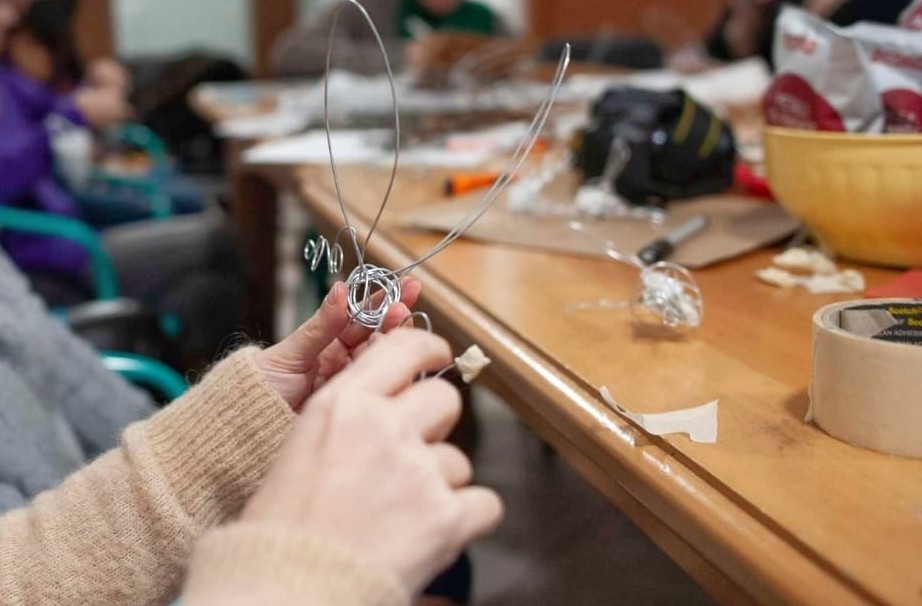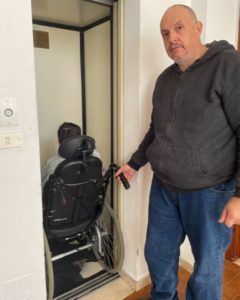
The testimonies to ilfattoquotidiano.it of Francesca, Chiara, Marianna, Ivan who found themselves living their disability as a fault in everyday situations: workplaces, administrative offices, banks. On an island that continues to record dismal national records for patients affected by central nervous system disease
The disability like a fault. Illness as a cause of job loss oh you denial of a loan. Made noise in the newspapers, a few months ago, the story of Emanuela Cappaithe teacher of Calming (center of the province of South Sardinia), removed from her post because she was deemed unfit to teach and unable to handle children by a commission from the Ministry of Education. in Sardinia theaismthe Italian multiple sclerosis association, follows many similar cases: stories of discrimination related to objective difficulties caused by the disease. Because if it is true that the pathology of central nervous system does not prevent you from working (except when it progresses in the most severe forms), it is equally true that affects everyday lifeimposes times and strategies that often turn out to be incomprehensible, if not downright unjustifiable, in the eyes of others.
There are those who want to tell their stories. Francesca e Chiara are two of the approximately 7,000 patients in Sardinia who come to terms with the unpredictable disease that is registered on the islandalmost double the average incidence national: 370 cases per 100 thousand inhabitants, against 200. Both are followed by legal service of the Aism of Cagliari. They agree to share their experiences with the hope of convincing other patients to report misconduct of colleagues and employers: “Silence means playing the game of those who would almost like to make us feel guilty for the disease that you certainly did not ask for”, says Francesca, 39 years old.
She worked for aservice company and in 2019, after a long series of visits and checks, she managed to give a name to the strange ailments that had been keeping her company for some time: limp walktiredness, difficulty holding objects in hand. “As soon as I received the diagnosis, it seemed right to communicate it to my managers, also because colleagues had noticed the symptoms now become visible,” he says. But the reaction wasn’t what she expected: not even a shred of empathy faced with his dramatic confession, only a wall faced with the request for compatible tasks to the health condition. “They told me I should fire me or alternatively, make me sick”. A blow to her heart: the world, which had already collapsed on her following her diagnosis, overwhelmed her a second time. It was the end of 2019: after a period of illness, she took over Covid layoffs. Then again illness, which will have to have an end. Penalty for dismissal. For this Francesca has now entrusted herself to the lawyers of Aism.
Chiara did the same, saleswoman in a chain store of clothing: your request for change of shifts of work fell on deaf ears. “I never backed down – she says – and I tried to keep the health problem to myself, but when it became clear that something was wrong, I talked about it and made my proposal to avoid having shifts that start in the morning they continued until the evening. It seemed to me a right thing, also to avoid having performance problems due to fatigue caused by the disease. But after an initial sign of availability, the situation returned to the way it was before: I even heard some colleagues complaining about my absences. Even knowing they were for checkups and therapies, certainly not for fun. Sometimes I get discouraged and it makes me think that I am the problem”.
Discrimination is also that suffered by Ivan47, who was denied a loan by some financial institutions due to illness. “I was told that according to them I was a risk of death and, therefore, I could not finish paying the installments. It was disheartening, also because I needed the money to buy one new car, with the wheelchair platform. I finally made it thanks to the director of a local bankwhom I know personally and did their utmost to accommodate my request”.
“Often the victim has difficulty in developing a full awareness of the phenomenon, he almost learns to to adapt”, dice Anna Perillo psychologist consultant of Aism. “The phenomenon should not be underestimated and there are many signs to pay attention to, in order to identify such behaviors due both to the disease and to gender”. Those that can be a wake-up call are a excessive isolation from the social lifeloss of interest in the outside world, renunciation of fulfillment and self-care. Ask for help is the way to go. For this reason, Aism has launched the project (for several years at a national level). I>Deaan initiative that is also active in Cagliari and with a path of self-learning and comparison aims to create awareness, giving the tools to understand how disability and pathology often hide profound gender discrimination as well as potential violence: not only physical, but also economic and psychological. Me too’Asms (acronym of Sardinia Multiple Sclerosis Association) keeps an eye on the phenomenon, as confirmed by the regional president, Sergio Cavoli. “Ours is a young association, but in about a year and a half our legal advisers have taken charge of two people for situations which, fortunately, have been recomposed”.
